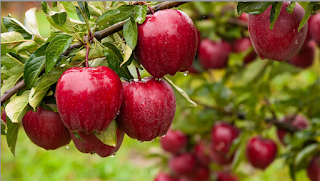 |
| Kinnikinnick [Ben Legler] |
Kinnikinnick Arctostaphylos uva-ursi
Kinnikinnick can be found from the coast to the subalpine zone and on both sides of the Cascade crest. Look for it on sandy slopes, exposed rocky banks, dry subalpine meadows, and coniferous forests. Kinnikinnick has many names, most referring to its fruits. Arctostaphylos (Greek) and uva-ursi (Latin) both mean "bear grapes." And what about the name kinnikinnick itself? It's an Algonquian word referring to the dried leaves' use in smoking mixtures. Sarah Gage writes. (Northwest Native Plant Society)
A Last-Gasp Effort to Resurrect a Mine in Bristol Bay
The state of Alaska has taken its case directly to the U.S. Supreme Court in an 11th hour effort to resurrect a giant, open pit copper and gold mine, proposed for a location in western Alaska that flanks two of Bristol Bay’s renowned salmon spawning watersheds. Joel Connelly writes. (Post Alley)
After four years, tribal canoes journey Salish Sea once more
A sea of people waited on the shores Sunday afternoon to welcome about a hundred canoes to Muckleshoot. The canoe families traveled from villages spanning Warm Springs, Ore., to Alaska, converging at stops along the shores of the outer coast and Salish Sea to share community, songs, meals and stories. It was the first journey since 2019 — since the pandemic began — and for many, a needed return to the water. Isabella Breda reports. (Seattle Times)
Ocean temperatures are off the charts. Here’s where they’re highest.
The Earth’s oceans have never been warmer. Every day since late March, the world’s average sea surface temperature has been well above the previous highest mark for that day. And there will be ripple effects: Marine heat waves are affecting about 44 percent of the global ocean, whereas only 10 percent is typical, and they can have “significant impacts on marine life as well as coastal communities and economies,” according to the National Oceanic and Atmospheric Administration. Tim Meko and Dan Stillman report. (Washington Post)
Can You Smell Me Now? How ’Bout Now?
Ocean acidification is going to do all sorts of weird things to animals’ sensory perception. Ethan Freedman reports. (Hakai Magazine)
Entangled humpback whale reported off Vancouver Island
The whale was first reported on July 22 off the coast of Lennard Lighthouse. Since then, members of the society and Fisheries and Oceans Canada have struggled to relocate the humpback. Alexandra Mehl reports. (Times Colonist)
B.C. big tree hunter documents grandest old-growth tree he's ever seen
TJ Watt says Western red cedar near Tofino is a 46-metre-tall leviathan of a biodiverse ecosystem. Chad Pawson reports. (CBC)
To Protect Stressed Salmon, a First Nation Closes a Popular Fishing Spot
The Lake Babine Nation says it acted unilaterally after years of trying to bring the DFO to the table. Amanda Follett Hosgood reports. (The Tyee)
Have you read the Salish Current?
Independent, fact based news for Whatcom, San Juan and Skagit
counties. Free to read, free from ads. Read the latest weekly newsletter
here.
Now, your tug weather--
West Entrance U.S. Waters Strait Of Juan De Fuca-
230 AM PDT Mon Jul 31 2023
TODAY
NW wind to 10 kt becoming W 10 to 20 kt in the
afternoon. Wind waves 1 to 3 ft. W swell 2 ft at 10 seconds.
TONIGHT
W wind 10 to 20 kt becoming 5 to 15 kt after midnight.
Wind waves 1 to 3 ft. W swell 2 ft at 9 seconds.
--
"Salish Sea News & Weather" is compiled as a community service
by Mike Sato. To subscribe, send your name and email to
mikesato772 (@) gmail.com. Your email information is never shared
and you can unsubscribe at any time.
Salish Sea News: Communicate, Educate, Advocate
Salish
Sea Communications: Truth Well Told













